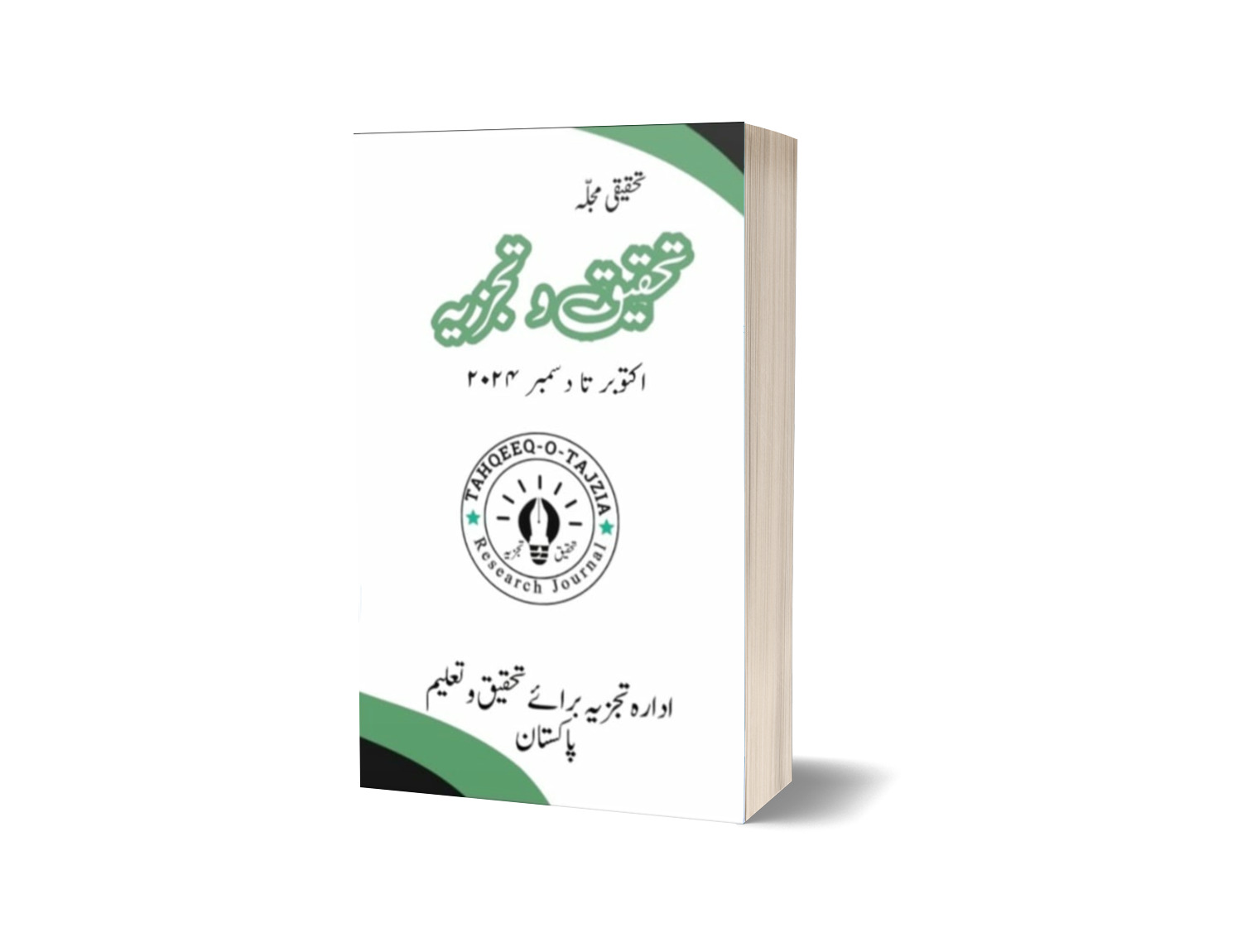A Review :The Male Characters by Indian Women in Urdu Afsana
Keywords:
Urdu Afsana, Indian women, After Partion, Male Character, Different Periods, Different Regions Most Nagtive Character, literary criticism, globalization, insightAbstract
From the beginning, women Afsana writers of Urdu have been walking side by side with male Afsana writers in the field of fiction. Women have interpreted society and life From the beginning, women Afsana writers of Urdu have been walking side by side with male Afsana writers in the field of fiction. Women have interpreted society and life through different characters in their Afsana. Indian women Afsana writers have contributed to Urdu literature. Among them are many well-known women Afsana writers like Ismat Chaghtai, Quratul Ain Haider, Jilani Bano, Wajida Tabasim, Renu Bahl, Salma Sanam etc. These women have played male characters. They have presented the majority of male characters in a negative way, but there are also contradictions in their attitudes towards men. Generally, men are targeted in their Afsana. Indian culture has created male characters according to socio-economic conditions and times.
Refrences:
- Ismat Chughtai, Do Haath, Mashmola: Do Haath, Delhi: Maktaba Jamiya, 2012, P 17
- Fakhr-ul-Islam Azmi, Ismat Chughtai ki Afsana Nigari, Mashmola: Maqalat Sir Syed se Mazameen Rasheed Tak, College, Azamgarh, 1985, P 178-180
- Qurat-ul-Ain Haider, Housing Society, Mashmola: Pat Jhar ki Awaz, Delhi: Maktaba Jamiya Limited, 1948, P 328
- Qurat-ul-Ain Haider, Purani Kahani, Mashmola: Mere Behtareen Afsane, Lahore, Rafat Publishers, 1981, P 164
- Qurat-ul-Ain Haider, Singhar Daan, Mashmola: Fasl-e-Gul Aayi ya Ajal Aayi, Lahore: Maktaba Urdu Adab, 1978, P 65
- Masarrat Jahan, Qurat-ul-Ain Haider ki Afsana Nigari (Ek Tanqeedi Mutala), Delhi: Arshia Publications, 1995, P 109-110
- Jeelani Bano, Rail ki Patri par Pari Hui Kahani, Mashmola: Yeh Kaun Hansa, Lahore: Sang-e-Meel Publications, 2017, P 108
- Irfan Munshi, Jeelani Hayat aur Karnamay, Maqalah baraye Ph.D, University of Kashmir, Post Graduate Department of Urdu, Srinagar: 2005, P 57
- Wajida Tabassum, Paish Bandi, Mashmola: Utran, Bombay: Aur Center Book Center, 1977, P 2
- Wajida Tabassum, Zara aur Ooper, Mashmola: Wajida Tabassum ke Shahkar Afsane, Murattib: Irfan Ali, Lahore: Rehman Book House, P 274
- Lal Zakir, Renu Behl ki Afsana Nigari, Mashmola: Khushboo Mere Aangan Ki, Delhi: Modern Publishing House, 2010, P 9
- Renu Behl, Lift, Mashmola: Khamosh Sadaayen, Delhi: Educational Publishing House, 2013, P 35
- Renu Behl, Mashriqi Ladki, Mashmola: Khamosh Sadaayen, Delhi: Educational Publishing House, 2013, P 39
- Renu Behl, Mukhote, Mashmola: Doobti Naslein, Delhi: Publishing House, 2021, P 114
- Salma Sanam, Tor par Gaya Hua Shakhs, Mashmola: Tor par Gaya Hua Shakhs, Karnataka: Urdu Academy, 2007, P 24
Downloads





